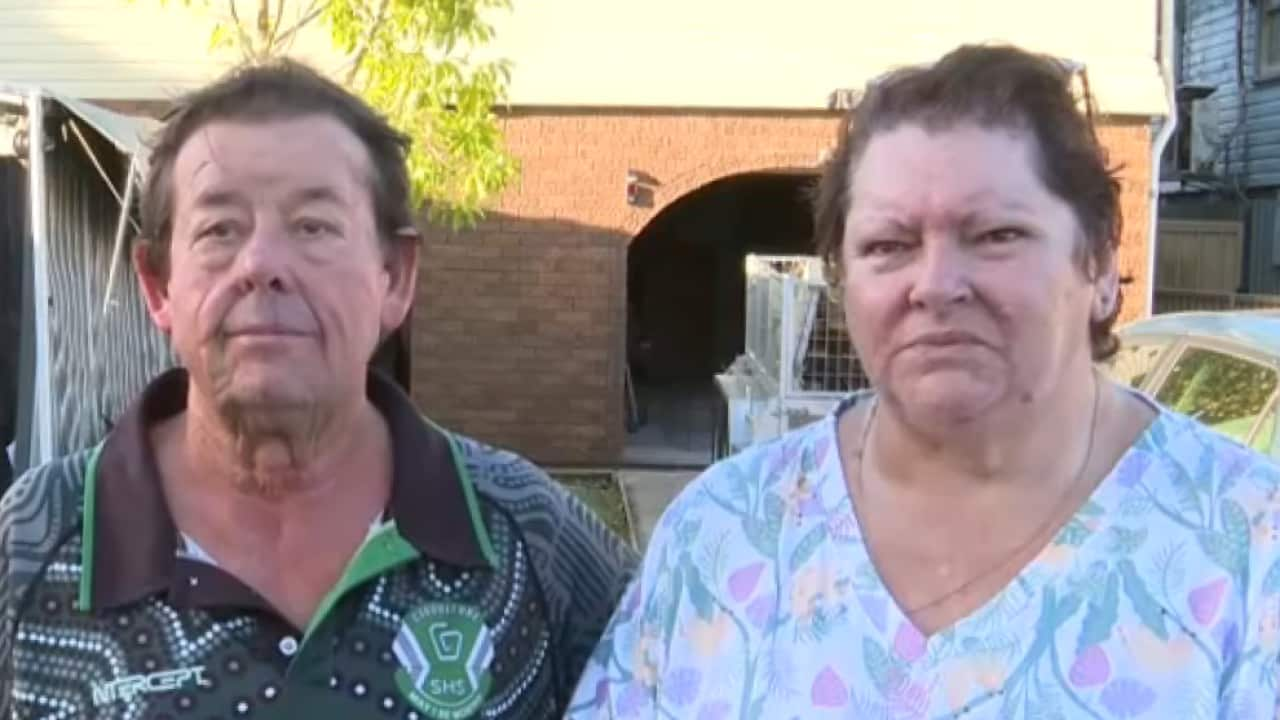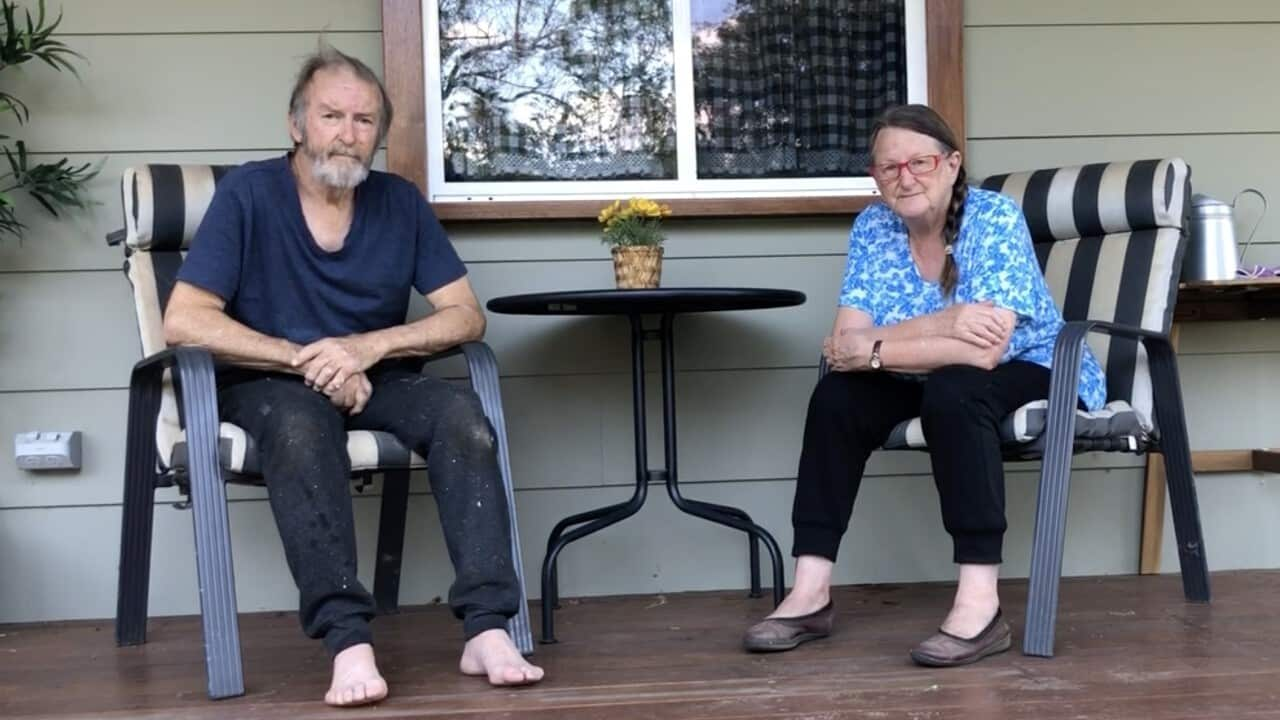Key Points
- A year after a record-breaking flood hit Lismore, many residents are still living in temporary accommodation.
- A joint federal and state government-funded house buyback scheme was announced in October last year.
- The first formal offers for the scheme were only issued last week.
Greg McMahon has lived in the flood-prone city of Lismore in northern NSW his whole life.
But even he didn't expect to cause as much damage as it did.
"I've never seen anything like it, nothing like it. I couldn't believe it," the 62-year-old told SBS News.
"It was just devastating."
His home was among when floodwaters peaked on 28 February 2022 in Lismore at the highest level on record — 14.4 metres. Several people also died.
After being evacuated from their home by the "tinnie army" — a group of locals who used their fishing boats to ferry residents to safety — Mr McMahon and his wife Vicki spent the next few months staying with relatives, before moving into a caravan in their front yard in May.
Nine months later, they're still living in it.
"It took 40 years to build the house the way we've got it, and it took six hours to wreck it," he said.
"It will probably be another three to four months before we're back in the house."

Vicki and Greg McMahon estimate the work on their house won't be completed for another three to four months. Source: SBS News
"There are people that are unfortunately still homeless, they're still living in cars or living in tents under their house," he told SBS News.
"It's been a very stagnant sort of procedure, as far as residents are concerned."
While Mr McMahon considers himself "fortunate", given his house was insured, he's "not happy" with how long the rebuild is taking.
"You drive around town and you see how many shops are in town or not open houses which haven't been touched," he said.
"There's a gentleman across the road here, all he's done is one room in a house.
"He's living in one room, the rest of the house is still not touched … and he's an elderly man."
A joint federal and state government-funded . The first formal offers weren't issued until last week.
"It's taking too long," Mr McMahon said.
"People can't live in squalor while they make a decision on what they want to do.
The Northern Rivers Reconstruction Corporation, which is responsible for rolling out the house buyback scheme, said it hoped to make 250 formal offers by the end of April.
"We'd like to see NSW pick up the pace," federal Emergency Management Minister Murray Watt said on Tuesday.
"We want to see people that are being able to move on with their lives, and in many cases that's going to involve having their homes bought back."
Part of what's stopping residents from being able to move on with their lives is a lack of information, according to Elly Bird, executive director of Resilient Lismore and a councillor on the Lismore City Council.
"There are maps that exist that show the high-risk areas where people will get offered buybacks," she told SBS News.
"Those maps need to be released, the information needs to be in the public realm, so that people know what decisions they can make to make themselves safe, and to have lives where they don't have to live with such high levels of risk if they don't want to."
Mr Krieg said while he understands the frustrations with the pace of the recovery, progress is being made.
“Our state government literally had to write legislation to be able to offer buybacks to residents and look at the possibility of the land swaps into the future, so it is going to take a little while," he said.
“You can't just hand out taxpayer money without having proper procedures in place."
NSW Premier Dominic Perrottet on Monday acknowledged the significant task still facing flood-hit communities in the Northern Rivers region.
"It will be a long journey ahead. It will be a challenge and we will stand with those communities as we have over the last 12 months," he said.
Ms Bird said in the meantime, community-led initiatives like Resilient Lismore will have to continue picking up the slack.
"It's not okay to just let the wheels of government grind slowly, we have to prioritise getting funding and resources to community groups on the ground that continue to make a significant difference," she said.
Mr Krieg said he'll be "interested" in another 12 months to see how far his city has come.
"Things can always be handled better," he said.
"Hopefully the rest of the country have learned from the Lismore experience, and the next town faced with a disaster will be able to have far more effective outcomes, far faster."












